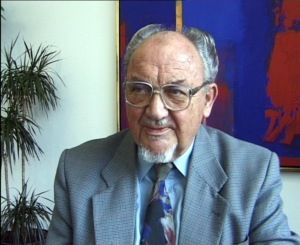News
Anker Jørgensen, former Danish prime minister, dead at 93
This article is more than 9 years old.
Influence of “man of the people” broad and wide

Politicians across the country are sharing their memories of Anker Jørgensen (photo: Hans Jørn Storgaard Andersen)
Anker Jørgensen, Denmark’s prime minister from 1972-1973 and again from 1975-1982, has died. He was 93 years old.
Danish politicians from all parties are remembering Jørgensen, who served as chairman of Socialdemokratiet (known as Socialdemokraterne from 2002) from 1973 to 1987, as a fierce but honourable political warrior.
Former PM Helle Thorning-Schmidt (S) wrote on her Facebook page that Jørgensen was “a man of honour who always fought for justice and equality. He never forgot those who have the least and fewest opportunities.”
Radikale head Morten Østergaard tweeted that “Anker Jørgensen was a person first and then a politician. His inspiration will live on.”
Remembered his roots
Jørgensen was born into poverty in an allotment house in Amager. He was orphaned at the age of five when both his parents died of tuberculosis.
He started his political career working for workers’ rights via several unions and was first elected to parliament in 1964. He served as a member of Parliament until 1994.
On 3 October 1974, the then PM Jens Otto Krag resigned his post and appointed Jørgensen as his successor.
Throughout his time in Parliament and at the top of government, Jørgensen and his family eschewed Marienborg and other political residences to stay in their Sydhavnen flat.
“Anker was, both privately and professionally, a good person,” wrote Socialdemokraterne in a statement. “He was, in the best sense of the concept, a man of the people.”






































